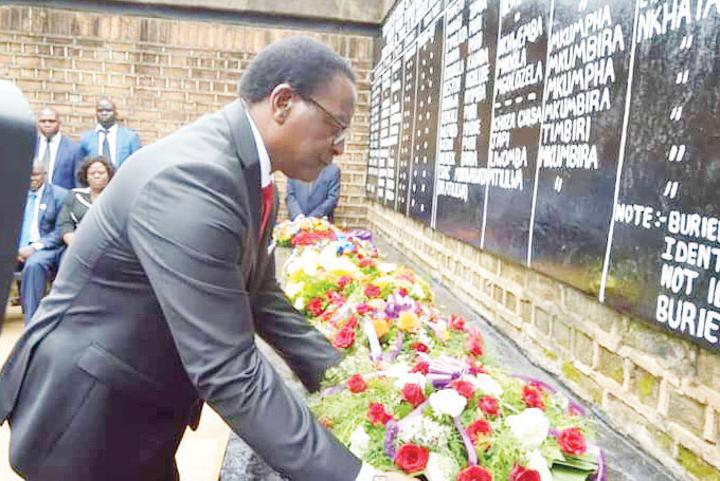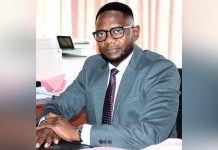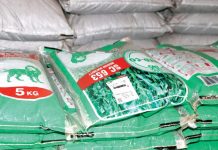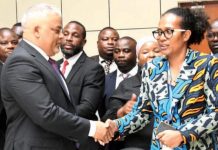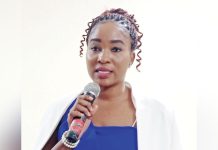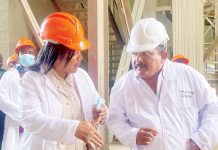Africa-Press – Malawi. Malawians have celebrated liberation heroes on March 3 since attaining independence in 1964. Our freedom heroes fought to address grievances such as unfair treatment of workers on European-owned estates and issues concerning land ownership and mistreatment of tenants on pieces of land belonging to the British settlers.
Other contentious issues included the imposition of hut tax which was later followed by other taxes on bicycle ownership and the monopolisation of commercial farming for certain types of crops like tobacco, then deemed as elite farm product.
Subsistence farmers were forced to follow certain farming methods, notably the construction of ridges or terraces on certain terrains. Additionally, poor wages and lack of incentives for African workers in comparison to European civil servants holding similar positions, and blatant racial segregation despite one’s educational levels, also infuriated Africans.
Discrimination against Africans was common at workplaces, schools, hospitals, shopping centres, banks, residential areas and in the provision of other economic sectors and social services. However, Africans were often divided other than united on fighting the vices they encountered in the British Nyasaland Protectorate.
There were associations for teachers, civil servants, especially in the Northern and Southern regions, and several others, including lorry drivers’ associations in the South, but these groupings rarely worked together.
And, at best, many of the associations operated more at regional level than at a national scale. Additionally, the African masses who formed the bulk of the population were generally left out.
Politics, especially during the second half of the last century, played a crucial role in merging the various worker-interest groups and the populace.
From 1915, politics in Nyasaland, notably the uprising of Reverend John Chilembwe, the man credited for pioneering the opposition to imperialism and British rule, was used to highlight some African grievances.
Grievances, such as the conscription of young men to fight in a European war, forced African labour on European farms and complaints related to land ownership compelled Africans to stand up against foreign oppression to liberate Malawi.
While Chilembwe’s uprising was almost immediately and brutally crushed by British soldiers, some lessons were learnt through that experience. The British colonial government, for the first time, admitted openly that, indeed, there were serious acts of abuse of Africans on European farms.
Africans’ awareness and resolve for self-determination gradually grew with the subsequent generations and, that way, Chilembwe contributed massively to the politics of Malawi and southern Africa. Typical of the time, the 1915 rebellion had no women openly participating in politics though they equally suffered the brunt of imperialist rule.
This was not strange because, according to politics of the time, in many regions women were only allowed to play an active role in politics much later, especially during the postwar period after 1945.
Africans were aware of the needs and dignity of women who were sometimes abused during colonial days and, by the 1940s, Nyasaland had many indigenous associations, some of which focused on the issue of problems associated with being an individual of mixed race.
And, predictably so, even these associations were also, at times, divided in ideology and along racial backgrounds. The imminent threat of the Federation of Rhodesia and Nyasaland, as proposed and later imposed in 1953 by white settlers of Southern Rhodesia (Zimbabwe), scared Africans.
Africans feared that their British Protectorate status would eventually be jeopardised. White settlers in Southern Rhodesia had incorporated Northern Rhodesia (Zambia) and Nyasaland in order to make the desirable European numbers to get their bid for federation passed in the British Parliament.
On their part, Africans had feared that the federation would culminate in the declaration of nominal independence, modelled on the Union of South Africa, to favour Europeans – a situation that would make it even harder for Africans to gain independence.
With the federation imposed, Africans dreaded that the Protectorate status that had, in 1891, stipulated the handing over of power by the British to Africans when the Africans were ready to govern themselves would be lost.
People feared that the European settlers would entrench racial segregation in Nyasaland as was the case in Southern Rhodesia. Consequently, everybody got involved in the fight against the federation, including traditional leaders, who formed their own political association called Chiefs’ Union and elected chief Mwase of Kasungu as president.
The Chiefs’ Union solicited financial support from the African population to send representatives to Britain to petition Queen Elizabeth II to veto the federation bid by British settlers in Salisbury (Harare).
Our liberation heroes, despite their various backgrounds, had advocated a future where Africans would freely work and live happily, side by side with people of other races.
They also dreamt of a land where Africans enjoyed huge strides of economic and social development through hard work, good education and health facilities, integrity as God-fearing people as advocated for by Chilembwe and, later, Dr. Hastings Kamuzu Banda.
Chilembwe and, later, Banda encouraged a genuine love for patriotism, quality work, pride for local products and solid national development. Dr Banda was fiercely against wayward behaviour, corruption and laziness, as did Chilembwe.
Banda’s followers like Orton Chirwa, Masauko Chipembere, Kanyama Chiume and Dunduzu Chisiza, among many others, saw the liberation struggle as a vehicle for the emancipation of all Africans.
And that included women, the youth and anyone sympathetic to the African cause, whom the nationalists dutifully inducted into mainstream politics. There was to be no room for segregation, self-indulgence, laziness or tribalism or nepotism and cronyism.
And rampant corruption, at the expense of concrete national development, was never heard of or imagined. A few years after independence, the Government of Malawi revoked taxes on bicycles and radios while the poll tax (chamwaka) levied on every liable individual was removed by the government of Bakili Muluzi in 1994.
Muluzi also introduced free primary education, among other development initiatives. Do Malawians today appreciate the virtues of hard work, honesty and the fear of God as a necessary prerequisite for real freedom, a genuinely good life and true happiness – as our liberation heroes had diligently sought for and taught the nation?
For More News And Analysis About Malawi Follow Africa-Press

